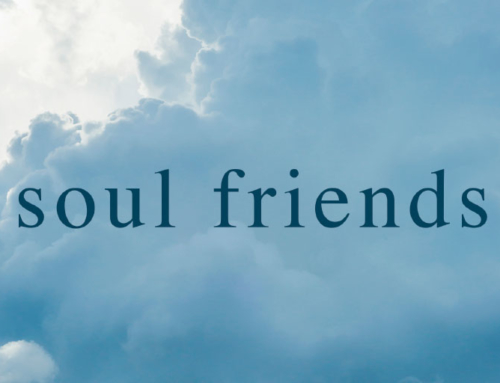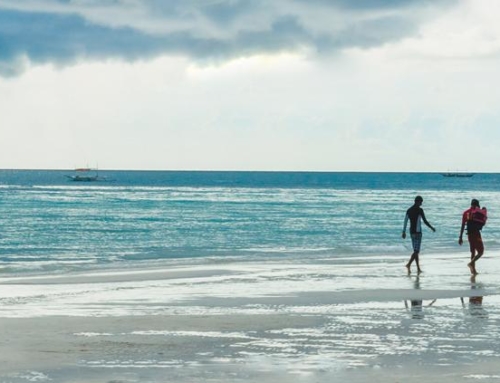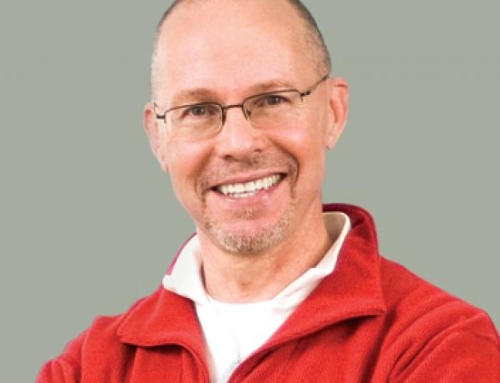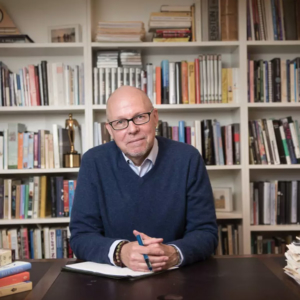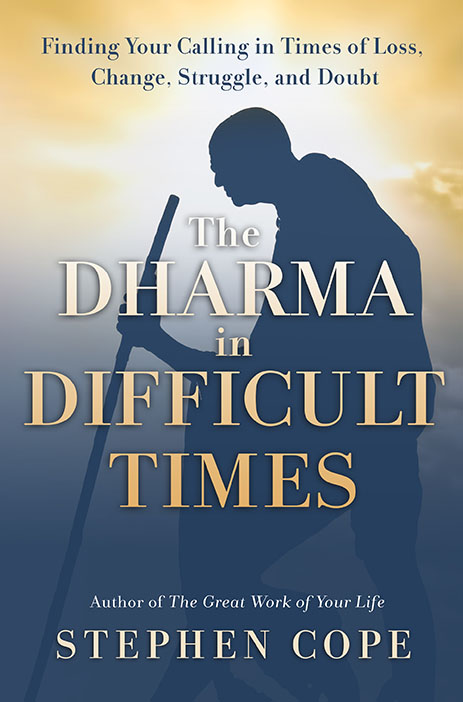By Stephen Cope ~
Psychotherapist and yoga teacher Stephen Cope’s new book The Great Work of Your Life challenges us to find our true purpose in life, which he believes all of us can achieve. Here, he gives a taste of the struggle and payoff that comes with seeking to find and cultivate our unique gift.
Here is a question I’d like you to ponder: Do you have a clear sense of your purpose in life?
I’m asking all of my friends this question these days. I guess I’m preoccupied with this question because I’m going through a phase — at midlife — of wondering about my own life.
I pose the question in a variety of ways. Perhaps I’ll ask: “What is it you are Up To — capital U, capital T?” Or, “Is your life driven by some intentionality — some deep meaning and purpose?” And then, of course, the all-important follow-up question: “Do you think this purpose is being fulfilled?”
You’d be surprised at the answers I get. Many of us, it seems, are a little vague about what it is we are Up To. Or even utterly confused.
Okay, I’m obsessed with finding the answer to this question. Perhaps this is because I am currently directing something called the Kripalu Institute for Extraordinary Living (IEL). I mean, really: If I’m going to direct an institute with such a name, perhaps I should be living an extraordinary life. What if people found out that my life is as ordinary as a peanut butter and jelly sandwich?
Can we look a little deeper? What, really, is an extraordinary life? And how does it differ from an ordinary one? After looking closely at these questions for a couple of years with my colleagues here at the IEL, I am more confused than ever. I’ve been struck by the ordinariness of most of the so-called extraordinary lives we’ve studied. And the closer we look at “ordinary lives,” well, the more extraordinary they appear. It’s tough being a human being — and I’m impressed by the courage I see in every single life I encounter.
But I persist: What about extraordinary living? Full living? I think that the yoga tradition can help us understand the possibilities. There is one piece of yogic lore in particular that I find very helpful. Yogis believed that every human being is born with a special gift. This gift, for each of us, is the doorway to a fulfilled life. It is the doorway to our own particular path, our vocation, our calling — our sacred duty. Yogis called this vocation our dharma. All of life is seen as an opportunity to realize and manifest this unique calling — this unique dharma.
Early yogis had a beautiful way of thinking about the importance of the gift. For these yogis, the whole world was seen as a vast net woven together in space and time — not unlike our notion of the quantum field. This was called Indra’s Net, and at the intersection of each warp strand and woof strand of this net is a jewel that represents an individual human soul. And it is that soul’s duty — sacred calling — to hold together its particular part of the web by being its own unique jewel-like self. In this way, the whole universe holds together as one great interlocking field, but only if each one of us plays our particular role, enacts our unique dharma.
I like this image. It honors each individual soul’s idiosyncratic gift and relates it to the thriving of the whole. And it underscores an idea that is present in Jungian archetypal psychology — the idea that not only do we each have a gift but we each have a profound responsibility to that gift. Our task, says the great Jungian psychologist Carol Pearson, is to take ownership of our gift and to trust that its full manifestation is precisely what the world most needs from us.
In the IEL, we work extensively with the perils and possibilities of the gift. We work with musicians, athletes, artists, corporate executives — and really with anybody who is interested in taking responsibility for the gift. Through our interactions with these inspiring people, we’ve discovered several very interesting — and often counterintuitive — truths about the gift:
The gift requires practice. This sounds odd. It seems as though the gift should be free, that perhaps we should come out of the womb playing the violin brilliantly. But alas, no. The gift is only a possibility. A seed. In order to be fulfilled, it requires love, nurturing and systematic and intentional development. In order to be fulfilled, it may require that we lavish ridiculous amounts of time on it. And this dedication of time and energy will require faith.
Our work with talented musicians sheds light on this: Two decades of research on so-called “greatness” shows that the greatest musicians are not the ones with the most facility — those talented kids who actually did play the violin at age 6 and put on concerts for their parents’ astonished friends — but those who practiced deliberately and skillfully and tenaciously over long periods of time. Here’s another way of saying this: Once you have an inkling of your gift, it is your responsibility to help create the conditions under which it can flourish. The gift is free. But its fulfillment is your responsibility.
The gift is often paired with a wound. Strangely, we’ve noticed that our greatest strength (and greatest possibility) seems to be routinely paired with our greatest limitation — even our greatest wound. They are born together, like twins. This means that many of us must discover our gift in the very heart of our suffering, our difficulty, our struggle. The Eastern contemplative traditions have a poetic way of saying this: Our gift is like the lotus that is born out of the mud.
Katherine, a 35-year-old highly-successful poet with whom we worked, found that her gift for poetry emerged out of the difficult circumstances of her life — her suffering as a child in an abusive family and the early death of her beloved mother, and then her apparent early failures as a poet. It was through her faithfulness to her gift for words that she found a way of turning her wound into immense light. She practices her gift relentlessly, and as part of her practice usually writes a poem every day. This practice, she believes, has gradually transformed her suffering into wisdom. It has allowed her to connect her own particular suffering with the suffering of the world — releasing her from her difficult isolation. For many of us, the gift delivers up such moments of self-transcendence that enable us to transmute the wound itself into a source of life.
The full flowering of the gift is usually paired with a sacrifice. For most of us, fully choosing the gift will mean giving up something else. Maybe even giving up something that seems very important — maybe even something of apparent good in our lives. In order to be brought to maturity, we must decide not only for the gift but also against other things — and not just “bad” other things but also “good” other things. It is useful to remind ourselves that the word “decision” comes from the Latin “decidere,” which means to cut off. Full devotion to the gift may require us to cut off other paths — to focus our energy and passion in a most one-pointed way.
Walt Whitman was in the final stages of revising and marketing his brilliant collection of poems Leaves of Grass when he experienced a call — an interior call — to nurse the wounded soldiers of the Civil War. The power of this call forced him to confront a difficult reality: In order to be faithful to his call to help the suffering, he would have to give up (at least for a time) his passion for the practice of poetry — and even let go of revisions to his acknowledged masterpiece.
The times had called Whitman into a difficult choice between two apparent “goods.” As it turned out, Whitman poured out much of his life force in his nurturing of soldiers and was never again fully able to return to the poet’s life. His critical decisions in service of his dharma gave his actions great power, directionality, and certitude — and his sacrifice created a kind of bonfire of focus, intentionality and love. He was deeply connected with Civil War veterans for the rest of his life.
Dharmas very often require us to go to any lengths — and we discover that when it comes to the full exercise of our gifts, half-measures will avail us nothing. Only the full sacrifice of our energies is enough. Like the yogis of old, our lives become a sacrifice to our gifts. And these gifts are offered up to the world. Like Whitman, we may be used up — burned in the fire of our own gift.
And what about balance, you say? Shouldn’t we be striving to live more balanced lives? My exposure to so many individuals who are passionately living out their dharmas has forced me to look under the surface of the conventional wisdom about so-called balance. Actually, I’ve come to see that the ardency involved in living a passionate life creates an entirely new equation around balance. Ask anyone who is authentically and completely living out their dharma, and they will describe the sublime exhilaration that comes from such total living.
But — some of you will ask — can’t the devotion to the gift, then, become selfish and self-centered? Our investigations at the IEL reveal just the opposite. It turns out that for each of us, the gift is our own unique doorway into a connection with the whole. The full enactment of our jewel-like dharma truly connects us to the whole of Indra’s Net — to the hearts and minds of all beings, to the entire quantum field of mind and matter. Indeed, it turns out that we can only connect with the Universal through the Particular — we can only connect with the whole through the precise circumstances of our individual lives.
Consider Henry David Thoreau, who followed his idiosyncratic calling with great courage. It took him initially into a life of quiet retreat to Walden Pond — where he was widely considered a ne’er-do-well. But there by the pond, faithful to his gift, he wrote the great works that connected him with the universal strivings of humankind. He wrote Walden. He wrote his great essay, “On Civil Disobedience” — an essay that deeply influenced Gandhi and, later, Martin Luther King Jr. and contributed to the good of many people and nations.
I return to my earlier query: What is your gift?
Do you think — or fear — that perhaps you don’t have one? That somehow you’ve been left out of Indra’s Net? That perhaps you don’t have a jewel-like vocation or anything that even remotely resembles the call that motivated Katherine, Whitman or Thoreau?
My challenge to you, then, is to look deeper. Take this one precious life seriously. In our work at IEL, we have never encountered a single person who was not able to find — often right under their noses — the power of the gift in their lives. And having made that discovery, to find the possibility of truly living as a soul awake in this lifetime.

